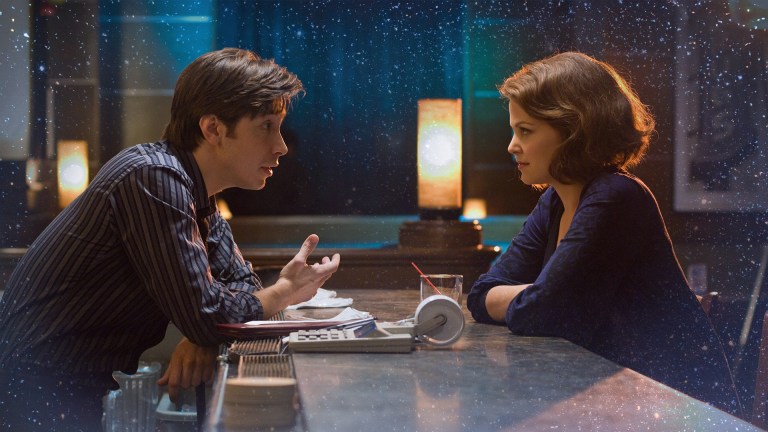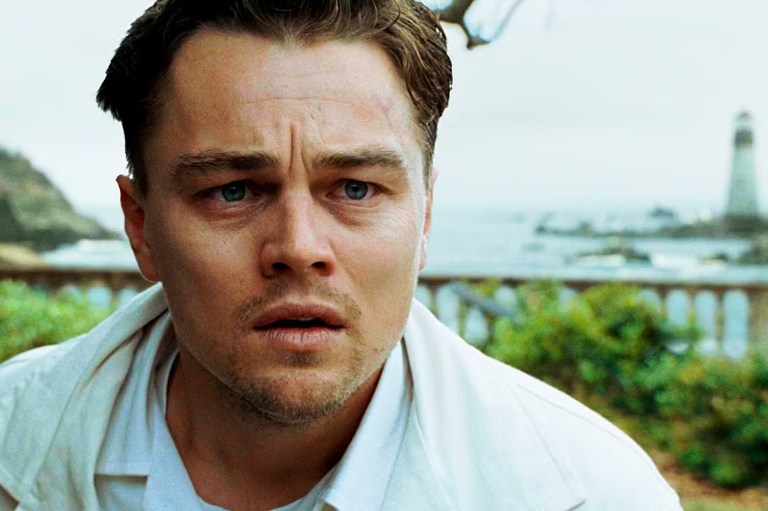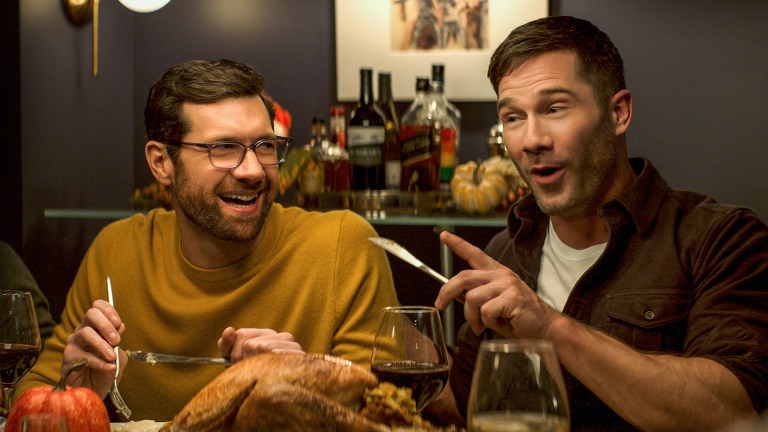
How To Enjoy Life: 10 Ways To Stop Running After Happiness And Finally Find What Feels Good Now
Ironically, many people who struggle emotionally are, at their core, people who actually just have a greater desire to enjoy life.
If you were to ask, many people would undoubtedly agree that they believe the purpose of life is to enjoy it. However, so many people struggle to be present and actually experience their lives as they are. The culprits are varied, and can include everything from unrealistic expectations to trying too hard to feel good (it is, after all, something you have to allow). Here, how to make the most of your life, starting right now.
When you’re struggling, the most insulting and difficult thing that someone can tell you is to “just relax,” or “just enjoy” yourself. When you’re in survival mode, the last thing you can possibly think about is just sitting back and rolling with the punches. This is the most important part of learning how to enjoy your life again: when you’re in a place of trauma and pain, you can’t try to force yourself to be happy. First, you have to step back into neutral.
When you’re struggling and you try to make yourself feel good, what you are doing is actually intensifying the polarity of your feelings. You are shoving the “bad” feeling down in place of trying to feel something different. This doesn’t work because it actually makes what you feel bad about worse. Ironically, many people who struggle emotionally are, at their core, people who actually just have a greater desire to enjoy life.
Stop trying to be happy.
“Happiness is as a butterfly, which, when pursued, is always just beyond your grasp, but which, if you will sit down quietly, may alight upon you.” – Thoreau
Happiness is not something you can chase. It is something you have to allow. This likely will come as a surprise to many people, as the world is so adamant about everything from positive psychology to motivational Pinterest boards. But happiness is not actually something you can coach yourself into.
Happiness is your natural state. That means you will return to it on your own if you allow the other feelings you want to experience to come up, be felt, be processed, and not resisted. The less you resist your unhappiness, the happier you will be. It is often just trying too hard to feel one certain way that sets us up for failure.
Arrive into the present.
“All negativity is caused by an accumulation of psychological time and denial of the present. Unease, anxiety, tension, stress, worry – all forms of fear – are caused by too much future, and
not enough presence. Guilt, regret, resentment, grievances, sadness, bitterness, and all forms
of non-forgiveness are caused by too much past, and not enough presence.” – Eckhart Tolle
There’s a saying that if you’re anxious, it’s because you’re living in the future, and if you’re depressed, it’s because you’re living in the past. When you’re living in the present moment, you realize that both the past and future are just current illusions in the infinite, eternal “now,” and that they are actually ways in which you can avoid being in your body.
The only place to find happiness is in the present because that’s the only place it truly exists. Trying to find happiness by focusing on what could or might happen in the future is actually a process of disassociation. Practice arriving into today by focusing on taking life one day at a time, and doing the most with what you have in front of you currently.
There’s a fine balance to be struck between living for the moment and taking care of your future self, and it is not only possible, it’s how you’re meant to live.
Stop trying to assert dominance.
“Nobody takes center stage or dominates the conversation for long stretches of time. Equality is an important element in hygge—a trait that is deeply rooted in the Danish culture—and also manifests itself in the fact that everybody takes part in the chores of the hyggelig evening. It is more hygge if we all help to prepare food, instead of having the host alone in the kitchen.” – Meik Wiking
In his book on Hygge, the Danish art of coziness and well-being that many attribute to the nation’s staggeringly high happiness rates, Meik Wiking explains that connecting with others is not just spending time with them, it has to do with not trying to dominate, impress or create an emotional reaction in someone. Instead, you find a lot more happiness by not trying to prove yourself.
People who want and need to assert their dominance in relationships are the ones who always in arguments over hypothetical things, creating drama at important holidays or events, or otherwise finding that the very people they are supposed to love and cherish most receive the worst of their behavior.
In order to find greater happiness, you need to see yourself as an equal to those around you. When you view yourself as in a position to constantly learn from all those you know, you are no longer compensating for fearing you are “beneath” them.
Lean into the little joys when you find them.
“The simple things are also the most extraordinary things, and only the wise can see them.” – Unknown
When we think of trying to “enjoy” life, it’s common for our minds to jump to trying to achieve things that are huge, overwhelming highs. We think that being happy is only what happens when we’re on vacation, or just landed a huge bonus.
This, however, is actually the opposite of happiness, because its conditional. True happiness is actually embracing the little joys in life. The sunrise on a warm summer morning, your cup of coffee, an amazing book. It is being grateful not only for when big things happen, but also for the small happinesses that you can find in each and every day.
Most people severely overthink happiness. They assume their lives have to be in perfect working order for them to experience real joy. This is not so. Real joy is finding happiness where you are, and how you are.
Nurture positive relationships when you have them.
“Life is relationships; the rest is just details.” – Gary Smalley
Regardless of whether or not you are introverted or extroverted, the quality of your relationships determines the quality of your experience of life. Tons of research backs this up: we become most like the people we spend time with; our happiness is directly correlated with not the quantity of relationships we have, but the quality of each of them; being lonely is as much a risk to your health as smoking.
However, what most people interpret this to mean is that they should just make friends where they can find them, and be close to their biological family, even if they dislike them. That’s totally missing the point. Happiness is not contingent upon you forcing relationships you don’t want to be in. It is, however, contingent upon you building and fostering relationships with people you already like.
When you have someone with whom you really have a connection, go out of your way to make sure you see that person, and keep your friendship healthy.
Learn something new all of the time.
“When you come to the conclusion that there is no such thing as failure when you are a constant learner is when you experience life in a new depth. Failure is not just a disappointment, it is in fact a new way of personal growth. Without “failing” you wouldn’t grow in the rate that you did without it. Don’t ever get discouraged because something didn’t work out, and always see failure as an opportunity to rise higher to your greatest self.” – Memoallure
When you approach life as though you already know all there is to know, you are actually closing yourself off to potentially having new and better experiences. If you assume that you know what will happen when you try something new, or if you think you know what places you haven’t been to would be like… you might just want to leave some room to surprise yourself.
Think of life as something you can constantly learn from. Your pain teaches you what does not feel good, and what you should not continue to do. Your joy teaches you what does feel good and in alignment. Everything can be your teacher, and the more you allow your life experiences to shift and change you, the better you (and they) will become.
See challenging times as opportunities for transformation.
“I think that we are like stars. Something happens to burst us open; but when we burst open and think we are dying; we’re actually turning into a supernova. And then when we look at ourselves again, we see that we’re suddenly more beautiful than we ever were before!” – C. Joybell C.
Happy people aren’t joyful all the time, and this is an important distinction to make. In fact, genuinely happy people are more at peace than they are ecstatic about everything they experience.
This is because happy people are inherently coachable and changeable. They are not stuck in their ways. They understand that life requires growth, and when that growth stagnates, discomfort begins to arise.
The true nature of life is constant movement, and constant evolution. If you do not keep up with that, life will all but force you to change as it becomes less and less comfortable to stay where you are. You cannot avoid all pain, but you can absolutely avoid a lot of suffering by staying focused on your internal growth.
Be wary of what you give your energy to.
“Words are singularly the most powerful force available to humanity. We can choose to use this force constructively with words of encouragement, or destructively using words of despair. Words have energy and power with the ability to help, to heal, to hinder, to hurt, to harm, to humiliate and to humble.” – Yehuda Berg
Sure, most people realize that if they work a job they dislike or stay in relationships they despise for the majority of their lives they aren’t going to feel too great about it. What many don’t realize, however, is that there are far more significant things that we constantly offer our energy to that create the quality of our lives.
Those disliked jobs and stale relationships aren’t problems, they are symptoms, and at the root of all of it is: where you allow your mind to run. When you give your energy to certain thoughts, they gain life. There’s a saying that the wolf that wins is the one that you feed, and when it comes to the quality of your life, you need to be extremely careful of what you allow yourself to think. It will soon become what you feel, and then what you believe, and then how you behave, and sure enough, the way you live.
Schedule time to do nothing.
“The purpose of life is to live it, to taste experience to the utmost, to reach out eagerly and without fear for newer and richer experience.” ― Eleanor Roosevelt
Happiness is an active pursuit as much as it is a passive one. Though to feel fulfilled each day is absolutely a conscious choice (it isn’t going to happen by accident, FYI) the irony of really feeling good is that it’s not something you can force, it’s something you have to allow. Therefore, you have to create spaces in your life to savor the quietness, the nothingness, the whateverness of what’s in front of you.
Happiness is not filling your schedule to the absolute brim in order to wring the most you possibly can out of every second of your life. It is also taking time to embrace the mundaneness of everyday moments. It’s sitting back and reading a book, talking over dinner with someone you love, just enjoying the small things each day. Taking this time won’t happen on its own, you have to plan for it.
Schedule time to play.
“Are you happy? Have you ever been happy? What have you done today to matter? Did you exist or did you live? How did you thrive? Become a chameleon-fit in anywhere. Be a rockstar-stand out everywhere. Do nothing, do everything. Forget everything, remember everyone. Care, don’t just pretend to. Listen to everyone. Love everyone and nothing at the same time. It’s impossible to be everything,but you can’t stop trying to do it all.” ― Brian Krans
When we were kids, all we did was imagine and play. Our brains were our canvasses, and we inherently understood that we could make believe absolutely anything and spend the day living it out.
The same is true in adulthood, but over the course of a few decades, the world tends to have a way of beating the magic out of you. If you really want to enjoy life, you have to make time to do what you loved to do when you were young. Paint, play in the sand, play games you love, be creative for the sake of it.
If that all sounds childish, good. It means you’re ready to reconcile with your inner child who, by the way, is and always has been there all along. Enjoying life is living it out in both the simplest and most transformative ways possible. Part of that is simply letting yourself show up, and be who and how you are. ![]()











